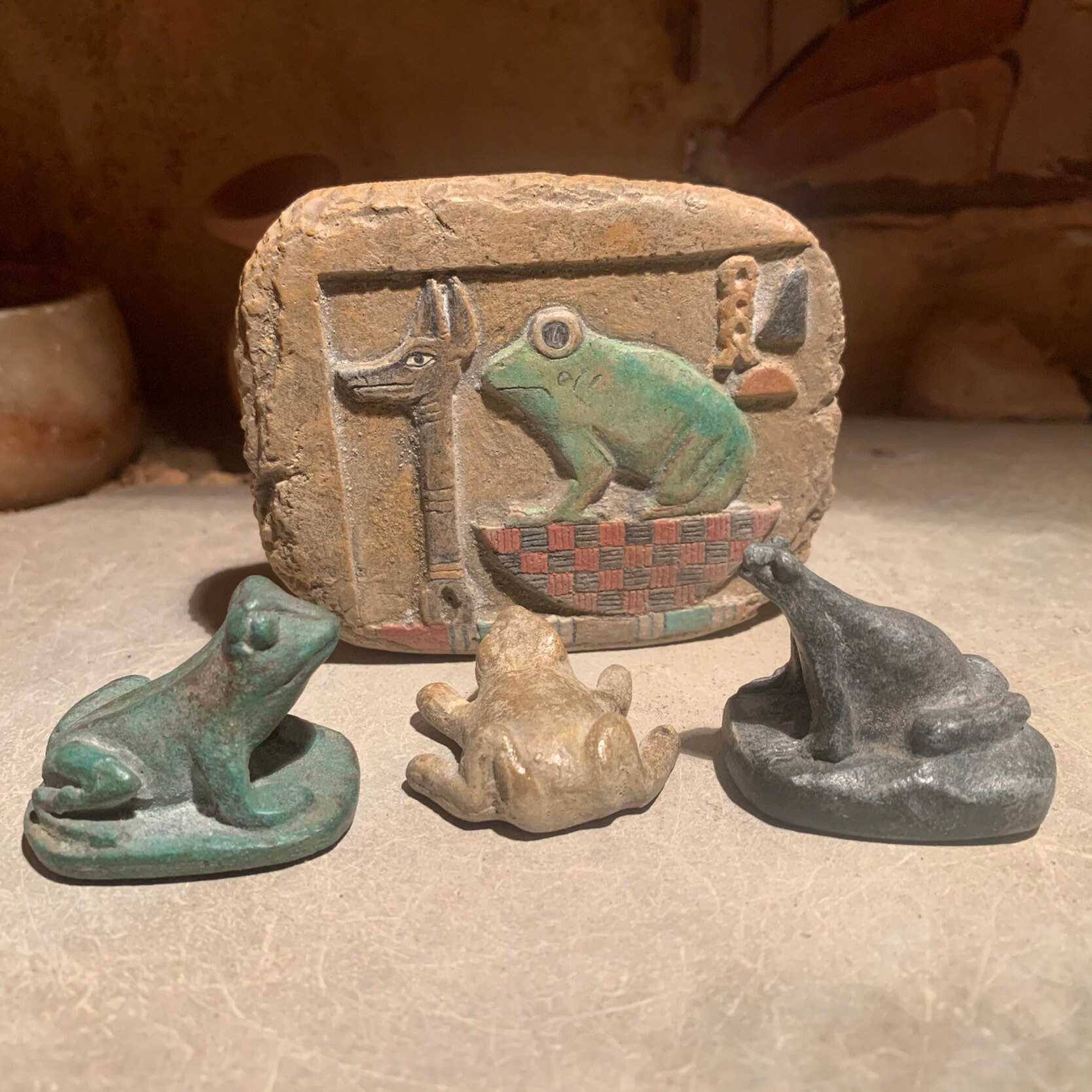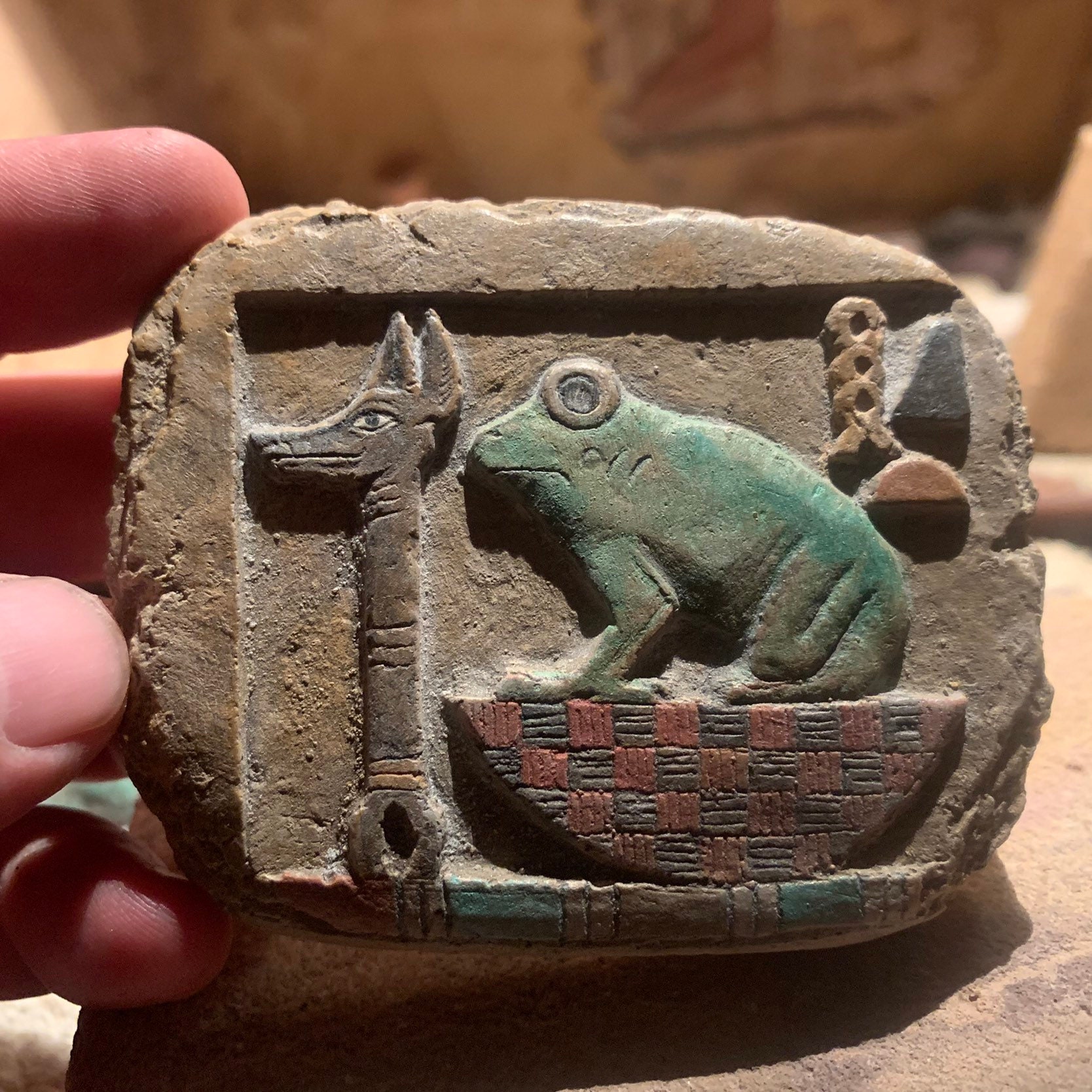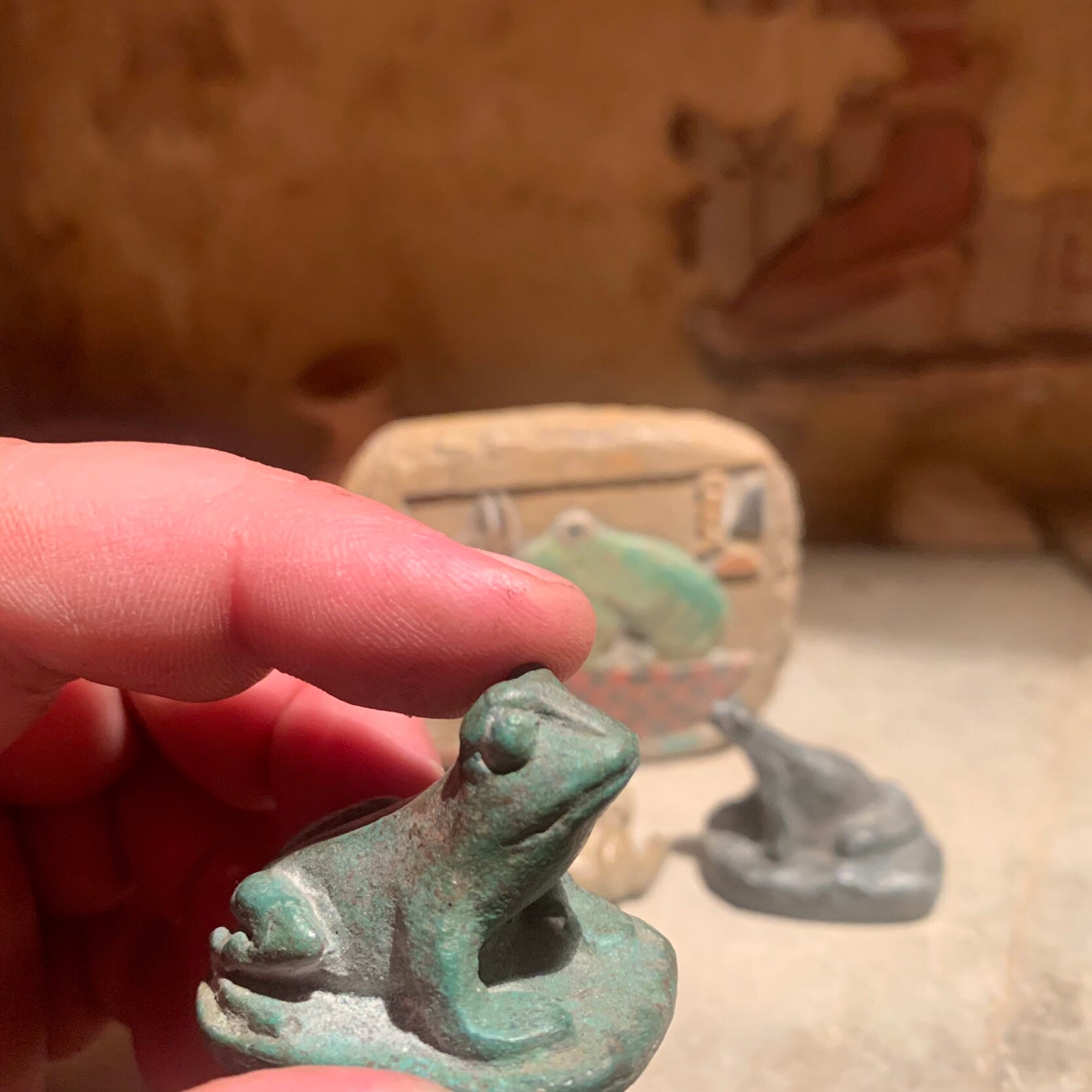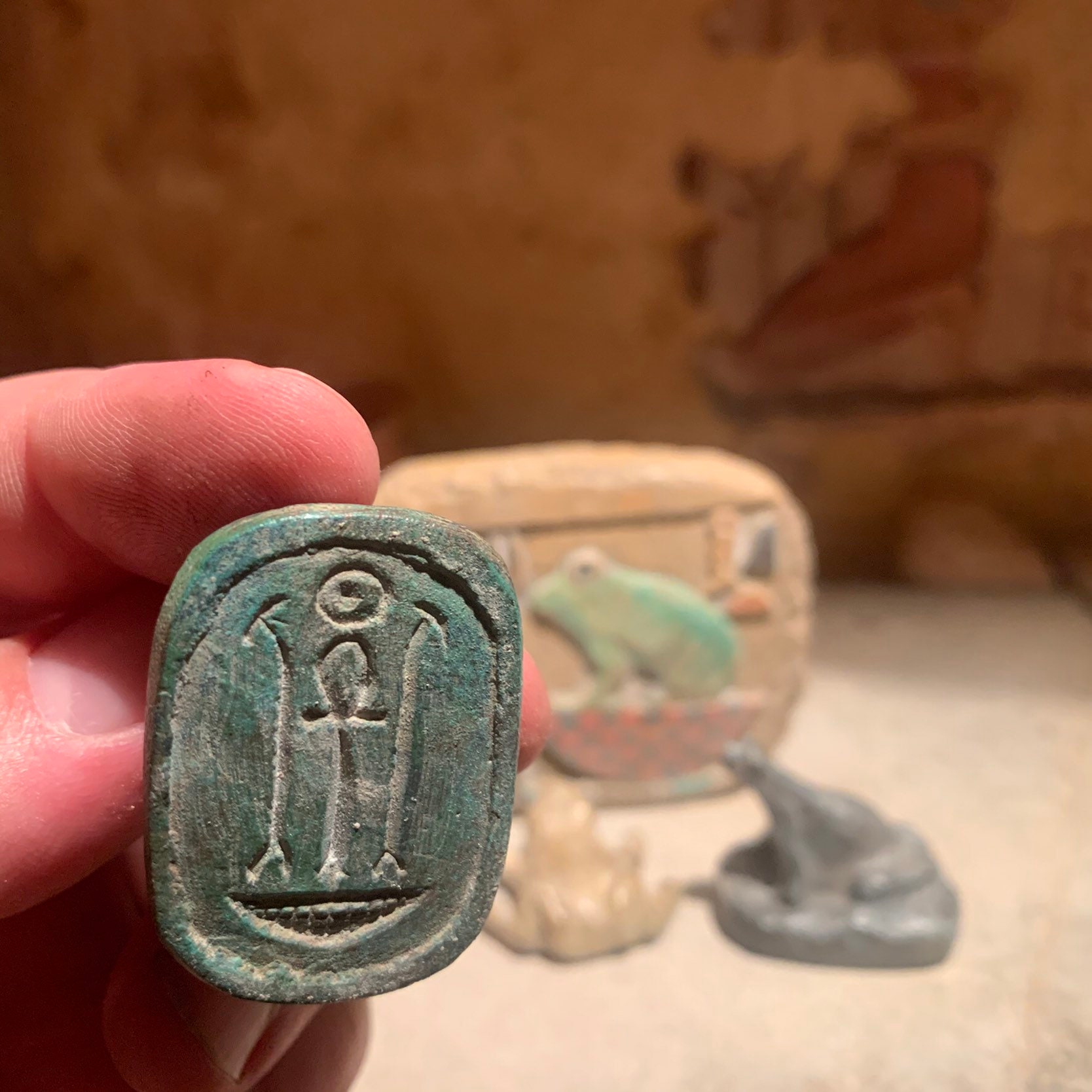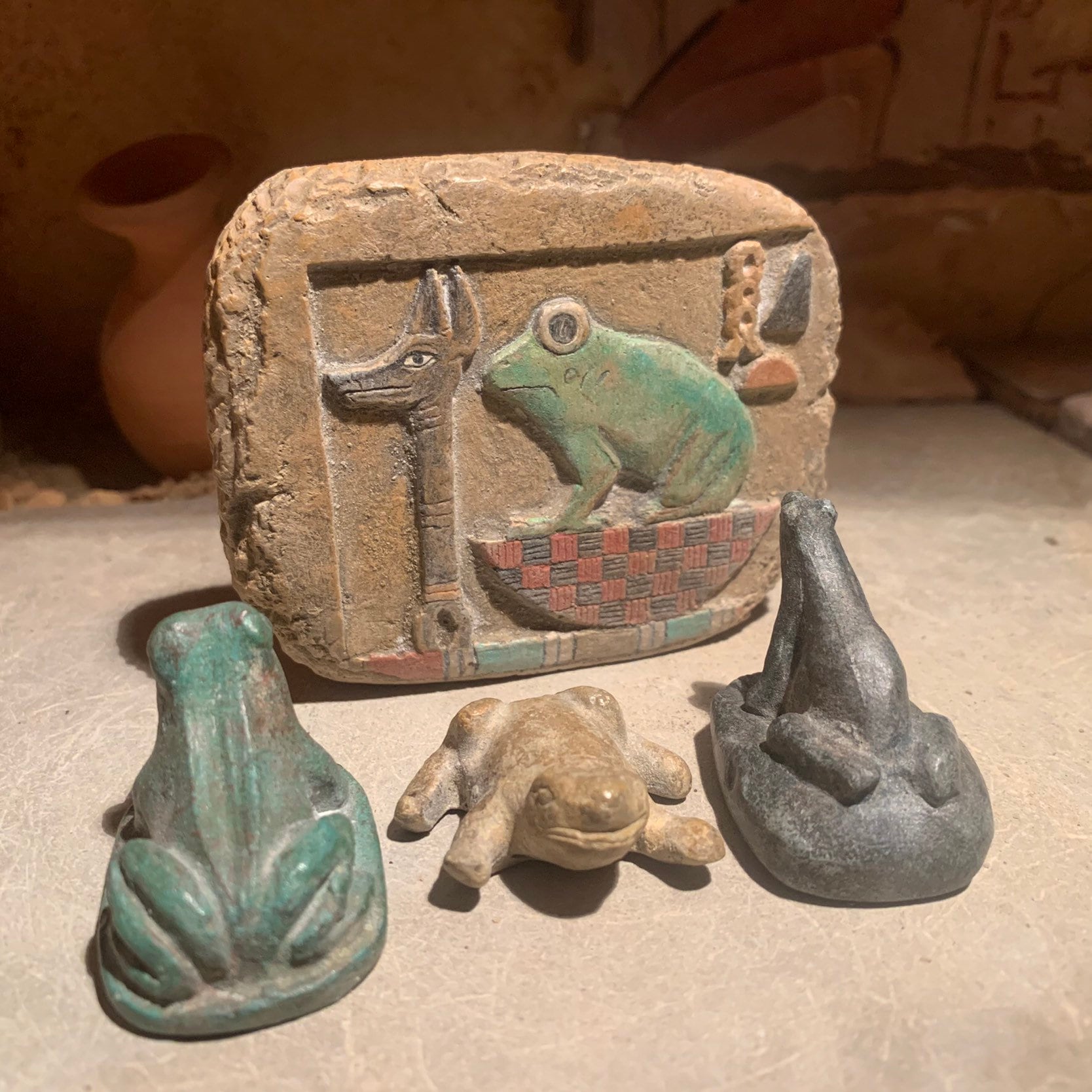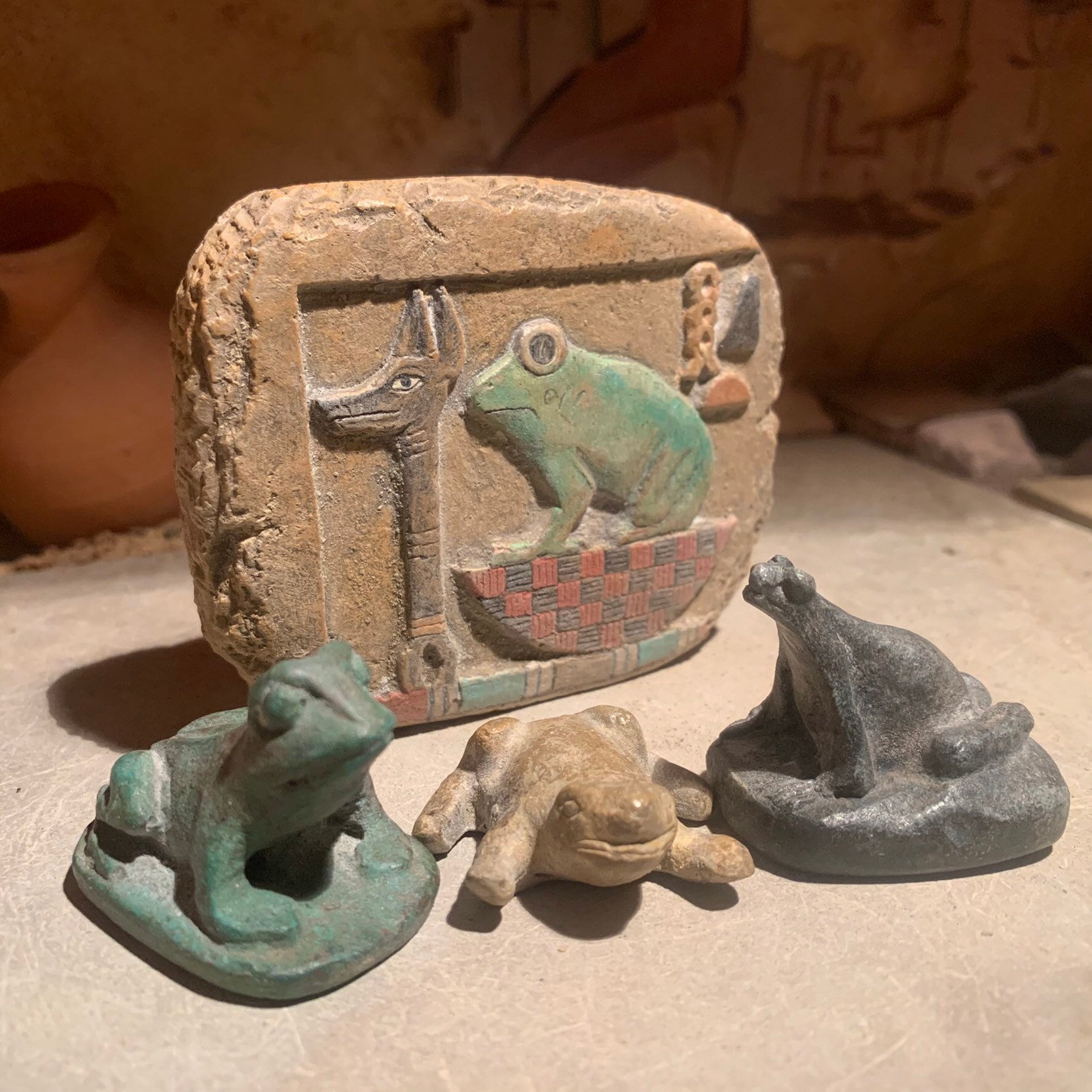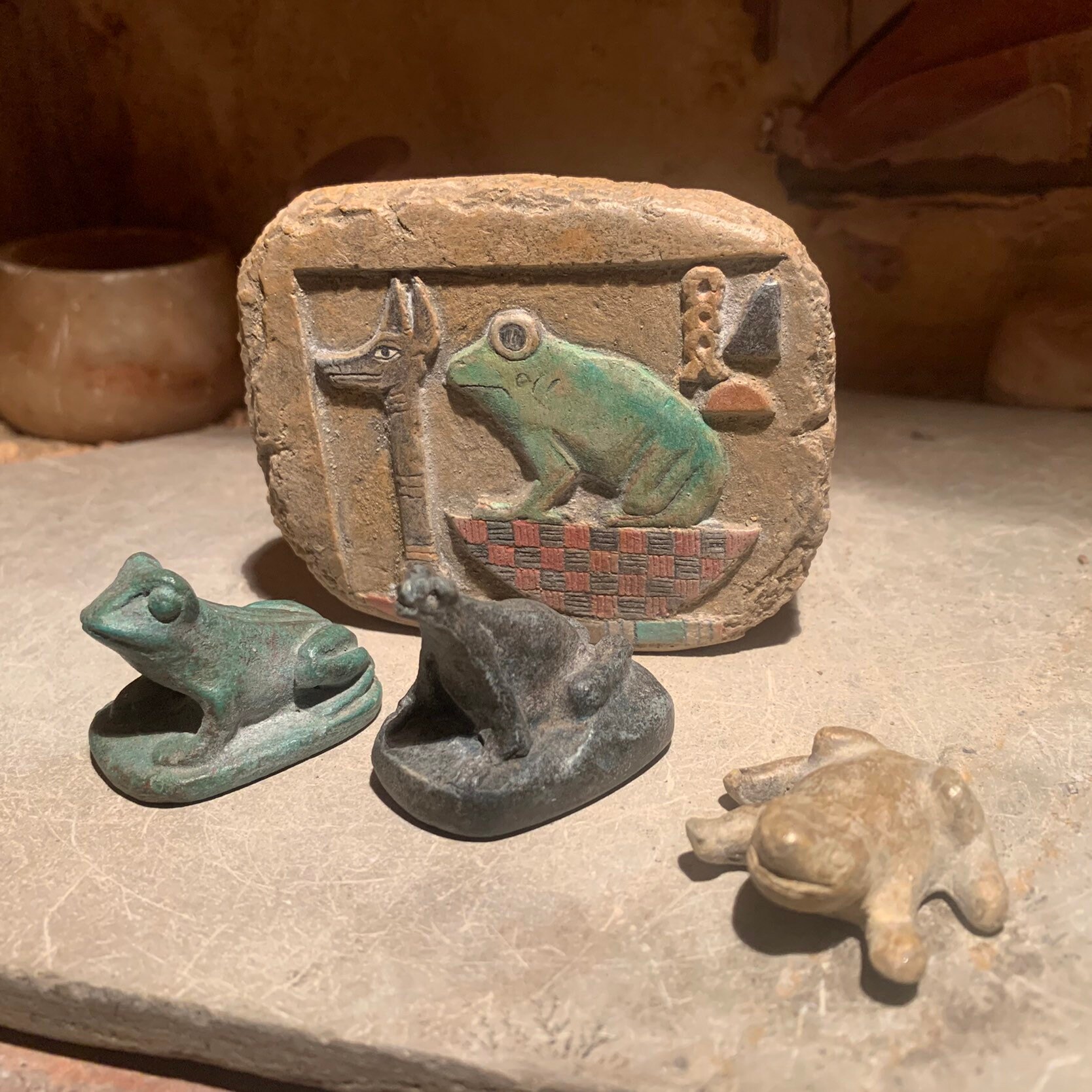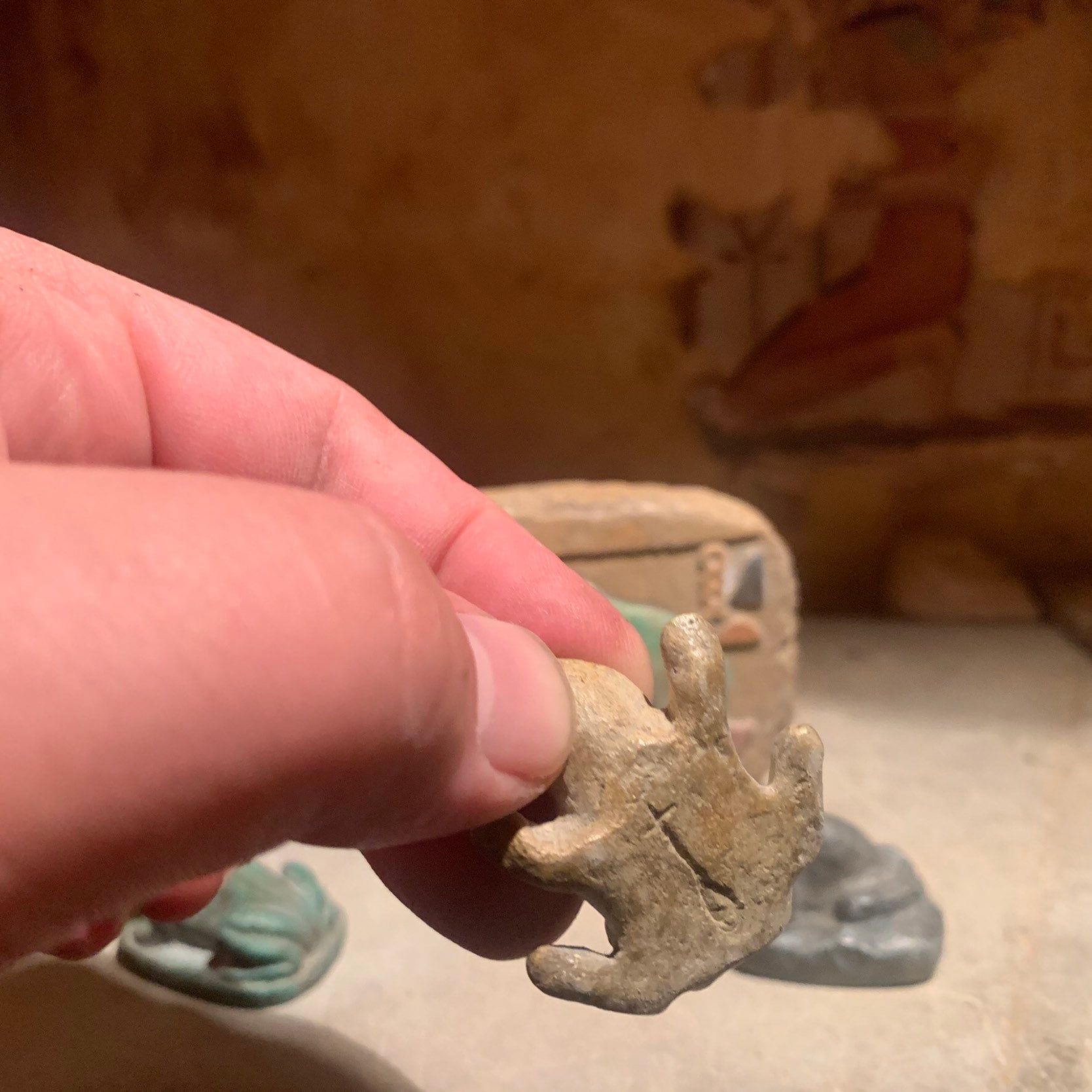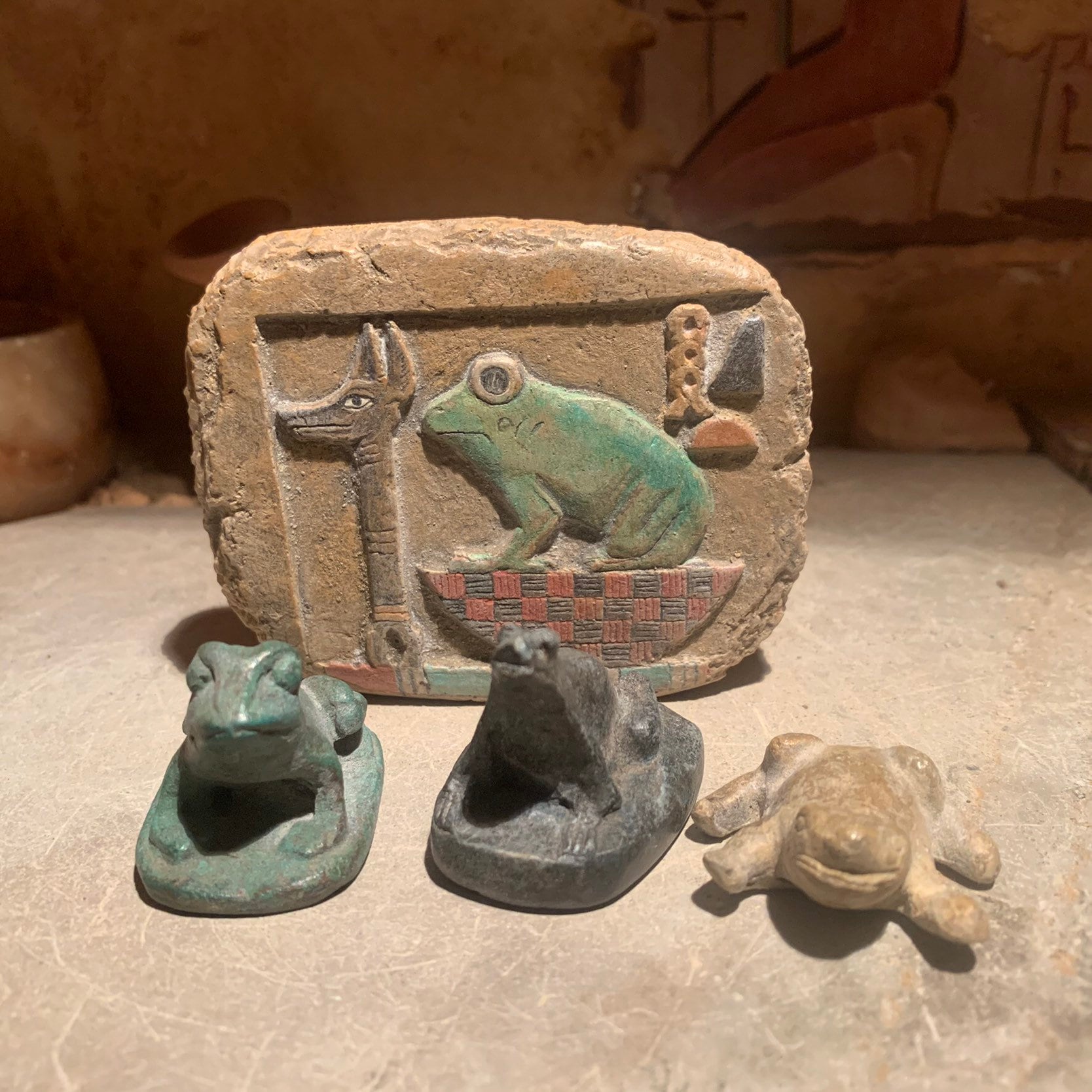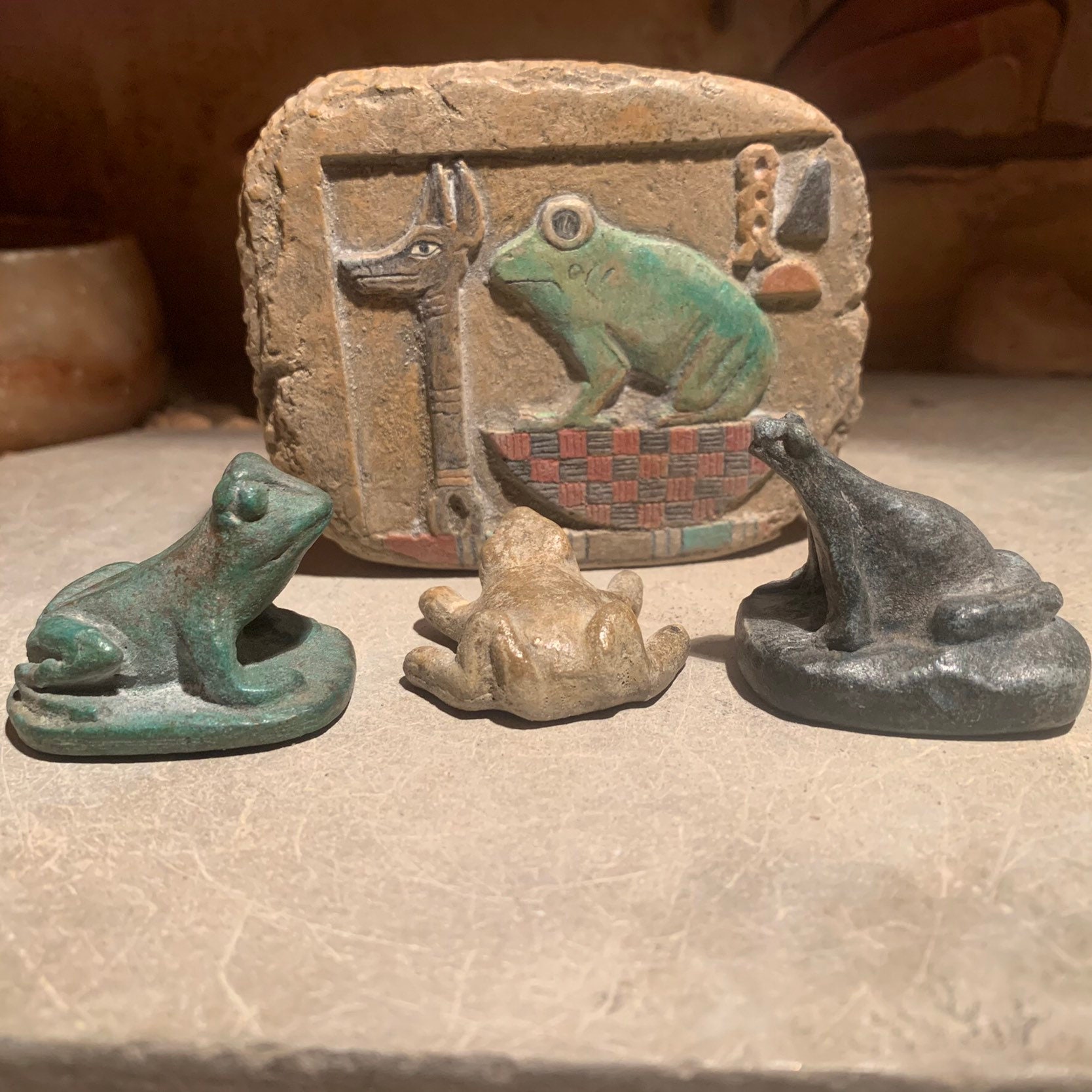Egyptian art - frog amulet sculptures and a relief of Heket - Hecate a principal deity of childbirth goddess-magic
$31.33
Heket
She who hastens the birth......
Dimensions :-
8.5 cm x 7 cm / 3-3/4 inches x 2-3/4 inches
On offer here is one of my recent carvings featuring the Egyptian frog deity Heket / Heqet.
In addition, a trio of replica Heket amulets are included and they are individually inscribed underneath. The relief features the crouching deity atop a woven basket glyph with a jackal sceptre directly in front. In the top right corner three hieroglyphs spell her name.
Made of a limestone and quartzite composition the relief has been painted in traditional subtle colours using my finest pigments.
If you would like to see the progress pictures of this creation, please check out Down under Pharaoh on Instagram. A little video of the resident frog and his apprentice appearing at the completion of the carving is also worth a look.
Background information
Heket or Heqet is an ancient Egyptian deity strongly associated with childbirth and in particular the role of the midwife. Her form was the frog itself or a woman with a frog's head. The priestesses of Heket were midwives serving in the local temple and within the community.
The name Heket is partially derived from the word for 'sceptre' which is 'heqa' and has the dual meaning of 'ruler'. Heket is most likely the source of the name Hekate (Hekatey) who was the Greek goddess of witchcraft. Cross pollination of original Egyptian concepts transcended into contemporary and successive cultures especially the emerging Greek culture who admired and revered the Egyptian ways.
Heket was a deity associated with fertility, fruitfulness, abundance and transformation. These traits can be observed in nature if one has had the experience of watching a clutch of frog's eggs turn into tadpoles and progress through their amazing metamorphosis.
It was their intense march on the land as they emerged from the last weeks of the annual Nile flood that became the most potent symbol of the power of Heket and why she was associated with the very last stage of birth.
The records of Heket's presence in the Egyptian pantheon dates back to the early dynastic period and by the old kingdom her role was noted in the pyramid texts of king Unas as she helped the King traverse the eternal stars.
Other points of interest :-
She was the wife of Khnum the ram headed god who would fashion man on a potter's wheel. It was Heket who would breathe life into the figures Khnum created and place them in the womb of an individual. This is a beautiful and evocative concept that most of the ancient population understood even if they didn't have access to the visual descriptions contained on papyrus books or temple walls. Word of mouth for the most universal aspects of Egyptian religion was enough to embed a significant deitie's role into the mortal mind.
In the realm of the gods she was there to breathe life into the baby Horus at the time of his very birth. Her role thus became associated closely with the resurrection of Osiris myth and some of her amulets would be inscribed ' I am the resurrection' long before the Christian faith used this terminology.
Temples of Heket must have existed throughout the Nile valley or at least shrines within larger temple compounds as is mentioned in surviving written records and temple fragments. None are standing in their fullness today, however, a significant temple ruin in the provincial town of Qus has been identified as a joint temple of Hecate and Horus. Sadly only one pylon remains.
Her imagery can be found in the temple of Hatshepsut on the west bank of Luxor at Deir el Bahri. Heket presides over the Queen's own divine birth.
Shipping from Australia
Processing time
3-5 business days
Estimated shipping times
- North America : 1 - 3 weeks
- Europe : 1 - 3 weeks
- Australia, New Zealand and Oceania : 1 - 2 weeks
- Asia Pacific : 1 - 3 weeks
- Latin America and the Caribbean : 1 - 3 weeks
- North Africa and the Middle East : 1 - 3 weeks
- Sub-Saharan Africa : 1 - 3 weeks
I'll do my best to meet these shipping estimates, but can't guarantee them. Actual delivery time will depend on the shipping method you choose.
Customs and import taxes
Buyers are responsible for any customs and import taxes that may apply. I'm not responsible for delays due to customs.
Payment Options
Returns & Exchanges
I gladly accept returns and cancellations
Just contact me within: 5 days of delivery
Ship items back to me within: 14 days of delivery
Conditions of return
Buyers are responsible for return shipping costs. If the item is not returned in its original condition, the buyer is responsible for any loss in value.

